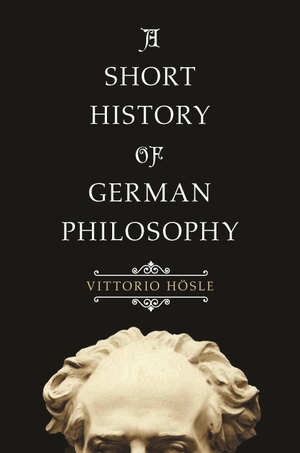Für statistische Zwecke und um bestmögliche Funktionalität zu bieten, speichert diese Website Cookies auf Ihrem Gerät. Das Speichern von Cookies kann in den Browser-Einstellungen deaktiviert werden. Wenn Sie die Website weiter nutzen, stimmen Sie der Verwendung von Cookies zu.
Cookie akzeptieren
Vittorio Hösle
A Short History of German Philosophy
- Princeton University Press
- 2018
- Taschenbuch
- 304 Seiten
- ISBN 9780691183121
This concise but comprehensive book provides an original history of German- language philosophy from the Middle Ages to today. In an accessible narrative that explains complex ideas in clear language, Vittorio Hösle traces the evolution of German philosophy and describes its central influence on other aspects of German culture, including literature, politics, and science. Starting with the medieval mystic Meister Eckhart, the book addresses the philosophical changes brought about by Luther's Reformation, and then presents a detailed account of the classical age of German philosophy, including the work of Leibniz and Kant; the rise of a new form of humanities in Lessing, Hamann, Herder, and Schiller; the early Romantics; and the Idealists Fichte, Schelling, and Hegel. The following chapters investigate the collapse of the German synthesis in Schopenhauer, Feuerbach, Marx, and Nietzsche. Turning to the twentieth century, the book explores the rise of analytical philosophy in Frege and the Vienna and Berlin circles; the foundation of the historical sciences in Neo-Kantianism and Dilthey; Husserl's phenomenology and its radical alteration by Heidegger; the Nazi philosophers Gehlen and Schmitt; and the main West German philosophers, including Gadamer, Jonas, and those of the two Frankfurt schools. Arguing that there was a distinctive
Mehr
Weniger
zzgl. Versand
Etwa 20 Tage